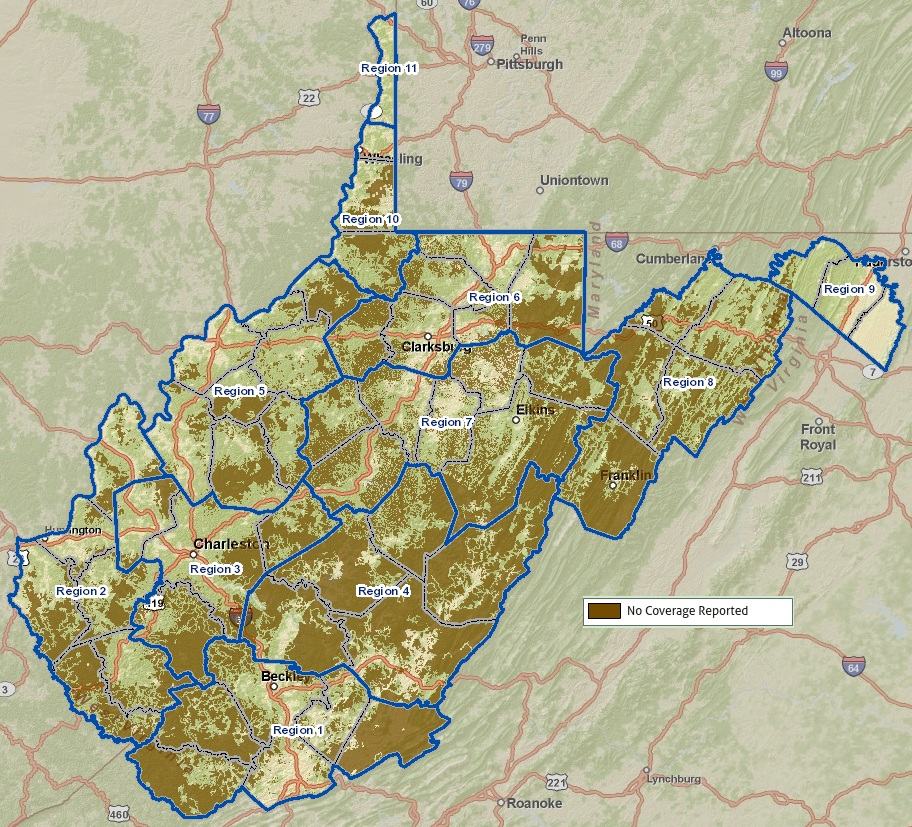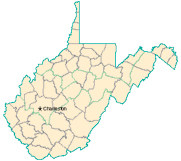Frontier Communications claims its expansive broadband deployment efforts in West Virginia will take the Mountain State from the bottom of the broadband barrel to the very top within a few years.
Dana Waldo, Frontier’s senior vice president and general manager, said the company has completely turned around landline and broadband service in West Virginia just over a year after Verizon Communications left the state.
In a wide-ranging radio interview with MetroNews, Waldo claims complaints are way down while DSL broadband deployment is way up. In just about a year, Frontier has expanded broadband to 76 percent of its West Virginia service area, adding 85,000 additional homes and businesses that previously had no access to wired broadband.
“We made a commitment to spend about $310 million, from the time of the transaction through 2013, to improve the network, to expand broadband across the state and for other capital improvements,” Waldo told MetroNews Talkline.
Frontier Communications’ Dana Waldo talks with MetroNews Talkline about phone and broadband service in West Virginia. July 19, 2011. (11 minutes)
You must remain on this page to hear the clip, or you can download the clip and listen later.
Currently, West Virginia ranks 47th in the United States for broadband access, mostly because large sections of the rural, mountainous state simply don’t have access to any provider. What access most do have, outside of major cities like Charleston, Huntington, Wheeling, and Parkersburg comes from telephone company-provided DSL. Verizon used to be the dominant provider in West Virginia, with Frontier providing service in limited areas. But after Verizon sold its operations in the state to Frontier, the independent telephone company is now the only telecommunications provider for many rural communities. For the majority of customers outside of the largest cities, Frontier markets DSL at speeds up to 3Mbps, hardly cutting-edge.
Frontier’s backbone network is deemed the worst in the nation for a wired provider, according to statistics collected and analyzed by Netflix.
“When comparing broadband in states like New York or New Jersey with West Virginia… there is no comparison,” shares Stop the Cap! reader Steve who lives in Hempstead, N.Y., but owns a cabin outside of Beckley, W.V. “You can get Cablevision’s cable broadband at rocket ship speeds or Verizon FiOS fiber-to-the-home, which is even faster, in New York. For my neighbors and me in West Virginia, there is one choice – Frontier Communications’ DSL, which can manage 800kbps on a good day.”
“I almost drove off the road laughing as I listened to the sheer nonsense of Mr. Waldo’s empty promises,” Steve shares. “This company’s idea of broadband access is up to 3Mbps DSL while nearby states like Virginia and Pennsylvania are getting fiber or cable broadband speeds ten times faster. How he expects to make West Virginia a top-5 broadband state with their obsolete DSL is a question the gushing host never bothered to ask.”
Steve doesn’t think too many of his Mountain State neighbors are as excited as Mr. Waldo by Frontier.
“God help you if your line goes out, because they can take days to get around to fix it,” Steve says. “Waldo tries to sell you his possum pie with claims the company takes longer to effect repairs so they are ‘done right the first time,’ which is a real hoot considering all of the repeated outages customers experience.”
Steve doesn’t lay the blame entirely at Frontier, however, claiming Verizon fled the state after mangling their outdated landline network and keeping it running with electrical tape.
“Frontier bought into a real mess, and I’m sure they will eventually fix a lot of the problems Verizon didn’t ever care to fix, but that doesn’t make West Virginia a broadband nirvana — certainly not with Frontier’s DSL.”


 Subscribe
Subscribe









